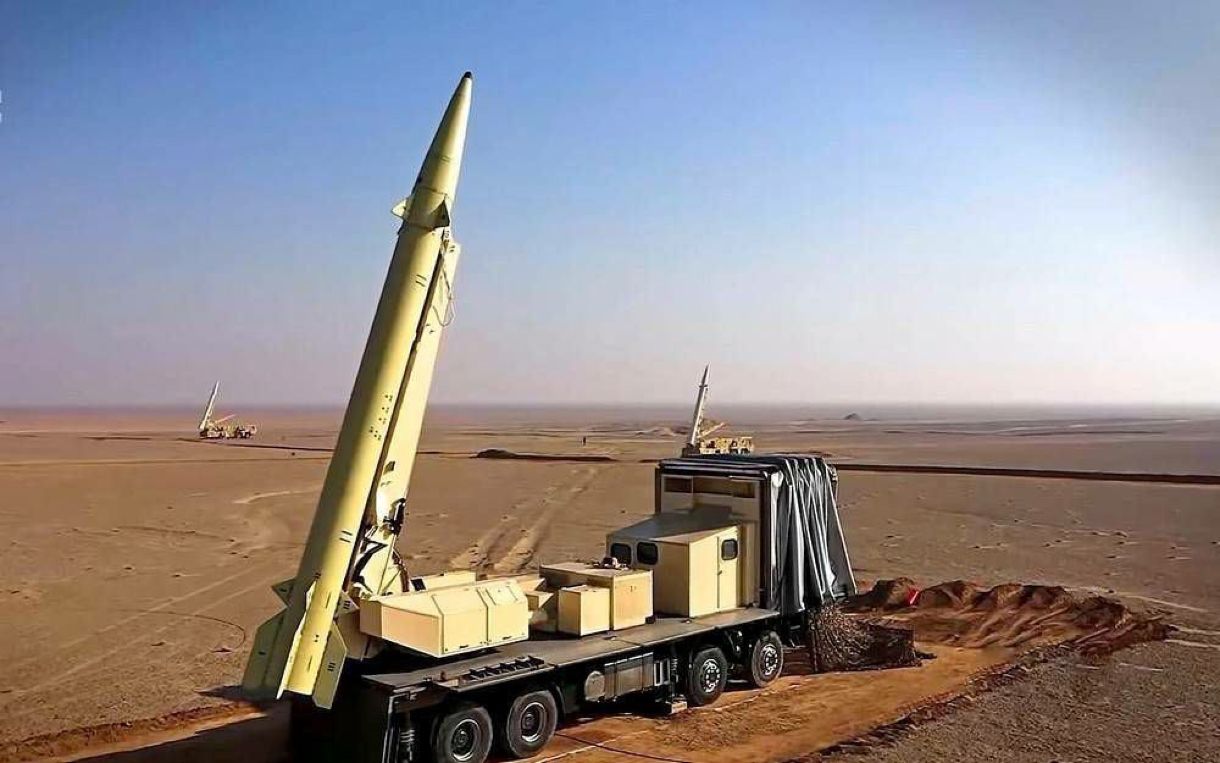Iran has issued a stern warning to Pakistan, urging the neighboring country to take measures to prevent terrorists from using its territory as a base for launching attacks against Iran.
Iranian Interior Minister Ahmad Vahidi conveyed the warning during his visit to the victims of a fatal assault on a police station in the city of Rask, located in the southeastern province of Sistan and Baluchestan on December 15.
Official reports from Iranian state media reported that the attack, carried out by members of Jaish Ul-Adl, a group designated as a terrorist organization by Iran, resulted in the death of 11 officers and left seven others wounded.
Jaish Ul-Adl claimed responsibility for the attack on Telegram before the media officially reported it, contesting the casualty figures and asserting in a separate post that 50 government forces had been killed and injured.
Following the incident, Interior Minister Vahidi visited the Sunni-majority southeastern province and expressed a commitment to seek vengeance.
Vahidi explicitly stated that evidence suggested the attackers had crossed the border from Pakistan and emphasized the need for Islamabad to enhance border control measures.
In a separate address, Minister Vahidi cautioned the Pakistani government against allowing terrorists to establish a presence within its borders. Furthermore, he alleged that Iran’s arch-enemy, Israel, “supports terrorist groups” near Iran’s borders.
Meanwhile, the latest confrontation also resulted in the death of several assailants in a subsequent shootout with the security forces. However, the attack stands out as one of the deadliest in the region near Iran’s borders with Afghanistan and Pakistan.
Despite frequent discussions between Iranian and Pakistani officials, as well as military commanders, on matters of border security, Islamabad has been unable to address the security concerns raised by Iran adequately.
The province of Sistan-Baluchestan has been marred by unrest stemming from issues such as drug-smuggling gangs, rebellion among the Baluchi minority, and the presence of Sunni Muslim hardliners.
President Ebrahim Raisi and judiciary chief Gholamhossein Mohseni-Ejei condemned the incident, calling for the punishment of those responsible.
The United Nations also condemned the Rask attack, with Stephane Dujarric, spokesman for the UN secretary-general, underscoring on December 15 “the need to bring to justice the perpetrators of this attack.”
A Series Of Attacks
Iran and Pakistan share a challenging-to-control 900 km (559 miles) border, which facilitates the presence of various militant and insurgent groups in the region.
Tehran has repeatedly expressed disapproval of Islamabad and pointed out its perceived failure to curb terrorists who have established a secure presence within Pakistani territory.
Jaish Ul-Adl, an offshoot of the Salafist militant group Jundullah, has been active in Iran’s Sistan-Baluchestan Province, with its base believed to be across the border in Pakistan.
Jaish Ul-Adl has been responsible for launching deadly attacks against Iranian border guards since at least 2013, resulting in casualties among Iranian forces.
The group’s operations began after the dissolution of its parent group, Jundullah, which was affiliated with al-Qaeda, following the capture and execution of its leader, Abdolmalek Rigi, by Iran in 2010.
In October 2018, Jaish Ul-Adl abducted 12 Iranian security personnel near Zahedan along the Iran-Pakistan border. In that case, Pakistani security forces assisted in the recovery of at least five of the abducted individuals.

The armed group gained international attention in 2019 following a high-profile suicide attack in Sistan-Baluchestan, Iran. The incident resulted in the tragic death of 27 members of Iran’s elite security force.
In response to that incident, Iran’s Islamic Revolutionary Guard Corps (IRGC) chief issued a strong warning at the time to Islamabad, urging immediate action against the armed group to prevent Tehran from seeking “revenge.”
The IRGC chief emphasized that if Pakistan fails to address the issue promptly, Iran will take matters into its own hands based on international law and retaliate against the terrorists.
Nonetheless, the assault on December 15 marked Jaish Ul-Adl’s second and most lethal attack on a police station in Sistan-Baluchestan during the year.
The initial incident occurred on July 8 in the provincial capital, Zahedan, and resulted in the deaths of two police officers and four attackers.
Meanwhile, earlier in late May, tensions escalated in Sistan-Baluchestan when an Iranian police station came under fire. The official news agency IRNA attributed the attack to “Taliban forces.”
This event unfolded in a region parched by drought and situated on the border with Afghanistan, where both nations have been engaged in disputes over water rights.
- Contact the author at ashishmichel@gmail.com
- Follow EurAsian Times on Google News




